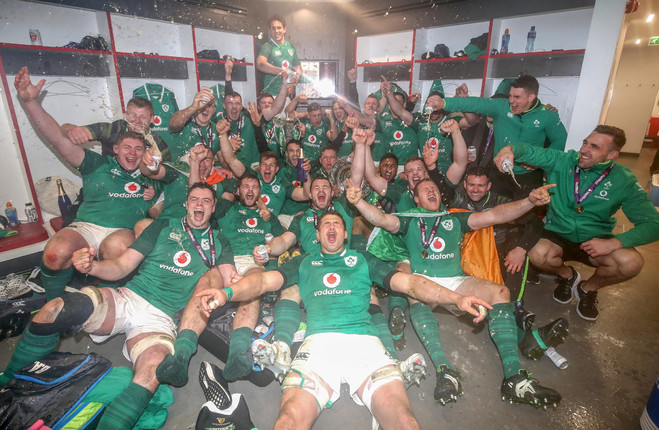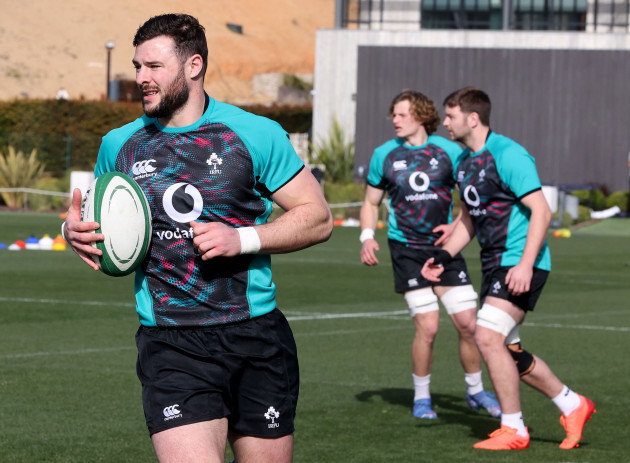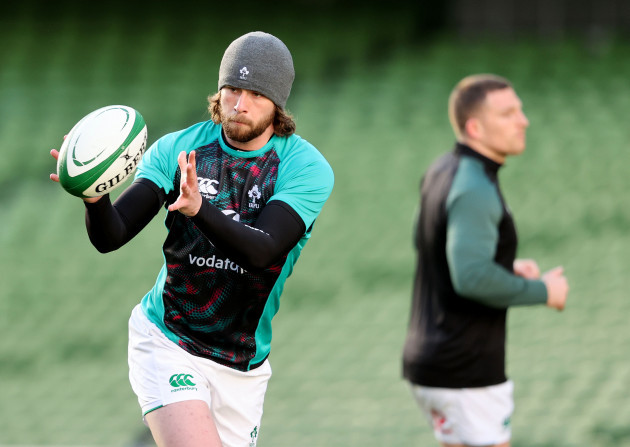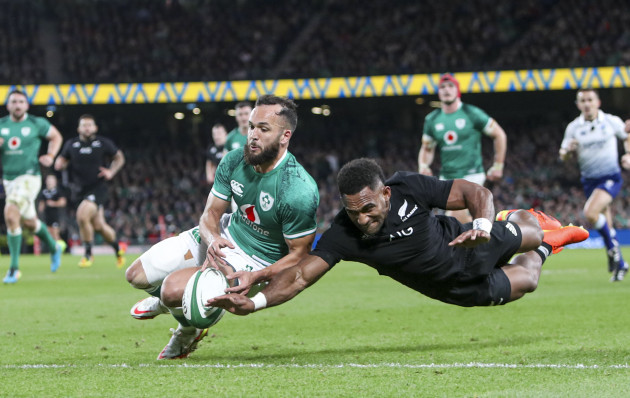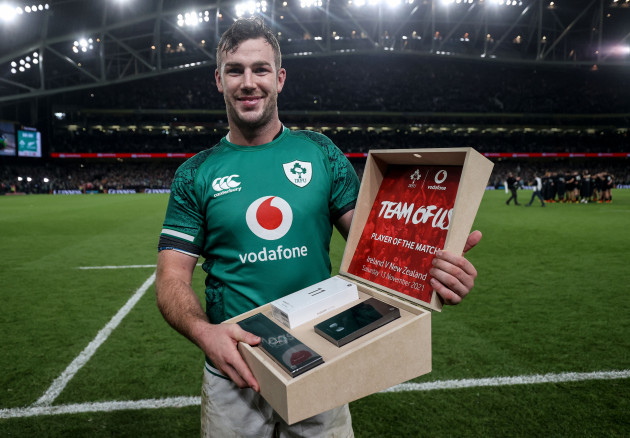ST PATRICK’S DAY, 2018. An Irish bar in south London, the gaff packed with Irish fans celebrating the grand slam.
Clad in green and white chequered trousers, complete with tricolour top-hats and green waistcoats, the members of the house band were determined to play up to the stereotypes as well as their audience, those cheery souls who had drank their way through the day and were now ready to dance through the night.
All the old favourites were belted out, from Christy Moore to The Horslips to U2. Even The Sultans of Ping got an airing but the loudest cheer was reserved for a teary rendition of Molly Malone.
As soon as the audience discovered no one could save dear old Molly from her fever, a man in a waxed jacket screamed out: “The HSE are a f***ing disgrace”. Everyone, including the lead singer, laughed. Then again, it was the sort of night where even Frank Carson could have brought the house down.
It’s a while since there has been a hooley like that and you can’t just blame Covid-enforced lockdowns for recent sobriety. The Ireland team didn’t give off much cheer, either, the 2018 side growing old.
A new coach suggested a new dawn but it took time before we saw any light.
Even now, three months on from the win over New Zealand, nearly 12 months on since they lost to anyone, there still isn’t total trust that Andy Farrell’s Ireland will be as good as Joe Schmidt’s version in 2018.
Bookmakers have installed France as favourites, England next in line, then Ireland. But can they prove the oddsmakers wrong? By the time Paddy’s Day comes around, will we be singing about cockles and mussels?
That very much depends on whether they can tick the following boxes.
GET THE BLEND RIGHT
There’s a lot to like about Andy Farrell’s team selection. He could have opted for Robbie Henshaw – Ireland’s player of the year in 2021 – but resisted the temptation as the Leinster centre nursed his way back from injury.
He could have been conservative with his wings but instead remembered his 16-year-old self, the kid who had become a teenage father just a few months previously and who knew he had to grow up fast. All the young Andy Farrell needed was a chance. Wigan gave him one. Now he’s the one handing out opportunities, Mack Hansen the surprise recipient of a cap.
That fits in with the policy Schmidt went with in 2018. Some of his players were considered past their sell-by date – Rob Kearney, Rory Best – others regarded as too raw; Andrew Porter, Jacob Stockdale, James Ryan. They weren’t. That year Schmidt made old and young rhyme.
“Dan Leavy had a tremendous tournament but you have to credit CJ Stander and Peter O’Mahony [Leavy’s back-row partners] for guiding him,” the coach later said, as he looked back on the tournament.
“It would be really hard for James Ryan to stand out if he didn’t have Iain Henderson or Devin Toner alongside him. I thought Besty led incredibly well, especially against Wales when you’ve got a 21-year-old tight-head, starting against Rob Evans, who’s a very strong scrummager. But Andrew Porter didn’t miss a beat.”
Nor did the much-maligned Kearney. “Jacob Stockdale is an incredible player, but he’s learning,” Schmidt said of the winger who scored 11 tries in his first nine internationals. “Still, it’s great having Rob and Keith (Earls) there to help him learn.”
As he spoke in the bowels of Twickenham’s gigantic stadium after that St Patrick’s Day win, Sexton referenced 2009 and how there were a quartet of players in that grand slam winning squad – Tomas O’Leary, Stephen Ferris, Luke Fitzgerald and Kearney – who had been recent additions to the panel. “They didn’t have fear,” said Sexton. Nor, in 2018, did Stockdale, Dan Leavy, Porter, Ryan, Jordan Larmour or Bundee Aki.
That’s what Farrell is hoping for from Hansen and James Hume. Every team wants a mix of young and old. Ireland have that.
GET THE GAMEPLAN RIGHT
At no stage in the 2018 championship did Ireland lose the possession or territory battlegrounds, while their discipline, scrummaging and lineout stats were also in the plus side of the chart. It was telling then to hear Simon Easterby mention discipline yesterday, how Ireland need to maintain theirs, irrespective of the pressure. They paid the price for that last year on the opening day when Peter O’Mahony got sent off.
Keeping your discipline is as much a tactical decision as a mental one. It requires a coach to forgive players for resisting the temptation to quickly get off their defensive line. Schmidt demanded patience. Of course it was also easier to maintain a low penalty count when your team dominated possession. Ball retention was an obsession of his which was fine in 2018 but which teams had figured out how to counter a year later.
Now, under Farrell, there is still an emphasis placed on the breakdown but the change is on what happens when the ball comes back. Farrell’s Ireland have more decoy runners; his players encouraged to pick plan B if plan A has been closed off. Their attacking game is quicker. Since Paul O’Connell came into the coaching ticket, their work at the ruck has improved significantly, not quite back to the 2018 levels, but good nonetheless.
Key to this is Jamison Gibson-Park’s selection over Conor Murray, a subtle departure from before. Ireland do things faster now when they get the ball. They don’t seek to unleash one-off runner after one-off runner. There are a few pages to their playbook. By 2019 most of what they did could be crammed into one page.
This marriage of the best aspects of the Schmidt philosophy – securing ruck ball – with the finer points of the Farrell ‘heads up’ ideology worked in November. But they were the mocks. In February and March you get asked tougher questions.
SQUAD DEPTH
Declan Kidney got away with using just 19 starters in Ireland’s 2009 grand slam campaign. You wouldn’t get away with that sort of thing now, not unless you get blessed with injuries. Back in 2018, Schmidt was tested; Tadhg Furlong missed most of the Wales game and then the Italy one. What we didn’t appreciate then was how good his replacement, Andrew Porter, was.
In the centres, Bundee Aki was a mainstay but Ireland lost Robbie Henshaw to a shoulder injury, then his replacement Chris Farrell — the man of the match against Wales to knee ligament damage. Enter Garry Ringrose.
Those cast members are still around now, although Porter has been earned a promotion from stand-in to central character. James Hume has impressed more than Chris Farrell in rehearsals while the 2018 rotation of Devin Toner, Iain Henderson and James Ryan has been slightly altered, Tadhg Beirne filling Toner’s large shoes.
If Porter is out, Cian Healy and Dave Kilcoyne are suitable alternatives. The options at hooker, in the back row, are plentiful. Scrum-half – once a worry – now has Nathan Doak, Kieran Marmion and John Cooney – as the fourth, fifth and sixth options. On the wing, Keith Earls is around to come back in. That leaves you sweating over three positions, tighthead, outhalf and full back.
The incumbents are fine; their back-ups are decent but what comes next? It’s one thing being good at club level, another thing being asked to win a game at Twickenham or the Stade de France.
LUCK
For this generation of players, 2022 offers them a chance to write their names into Irish folklore alongside the greats of the past: Kyle, Mullen, O’Driscoll, O’Connell, Sexton.
The motivation could hardly be greater, and yet, even Alex Ferguson famously said once how in really big games, sometimes you just need a fortunate break. Ireland had that in 2009 and 2018. But other years – 2015, 2006 – they were robbed of it.
When Ireland won the grand slam in 2009, Kidney had the luxury of going through an entire campaign without one serious injury interrupting his plans.
Schmidt wasn’t as fortunate in 2018 – Josh van der Flier lasted only 35 minutes of that campaign – but he did profit from the controversial, and unlikable, residency rule which supplemented his squad with quality operators — Stander and Aki.
And then there was the underage conveyor belt, where Ryan, Porter, Ringrose, van der Flier, Stockdale and Leavy stepped from. Four years on, we have seen Ronan Kelleher emerge, as well as his replacement and now rival, Dan Sheehan.
Caelan Doris is good enough to keep Peter O’Mahony out of the side. Compared to the Welsh – missing seven British and Irish Lions – they have thus far been fortunate with injuries. But it needs to stay that way. Countries like Wales and Ireland just don’t have the depth France and England possess.
MOMENTUM
In the Six Nations, old clichés die hard. The French remain unpredictable, especially in Paris when the sun is on their backs; Eddie Jones, meanwhile, is apparently a master of mind-games, even if he comes across to most of us as a tad tedious.
And then there are the Welsh, a team, we are regularly reminded, who are supposedly rubbish. Well, Ireland certainly won’t be making that mistake this weekend, and not just because of what happened in Cardiff last year.
Indeed, you only have to think back to Scotland in 2017, to the Aviva in 2019, for other examples of how Ireland’s grand slam ambitions came crashing down on day one. “Momentum is key, it is crucial to get off to a good start,” said Easterby yesterday.
If Ireland do so, Paris and the rest of this championship looks a lot less daunting and perhaps, perhaps, four years after our man in the barbour coat made his little joke about Molly Malone, we could finally get to hear the encore.
